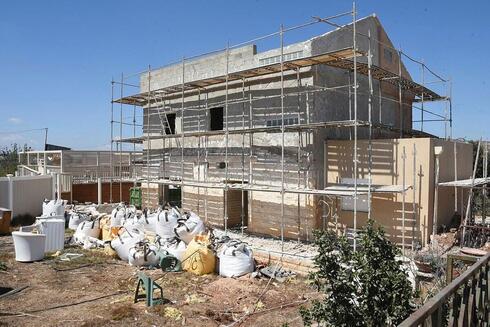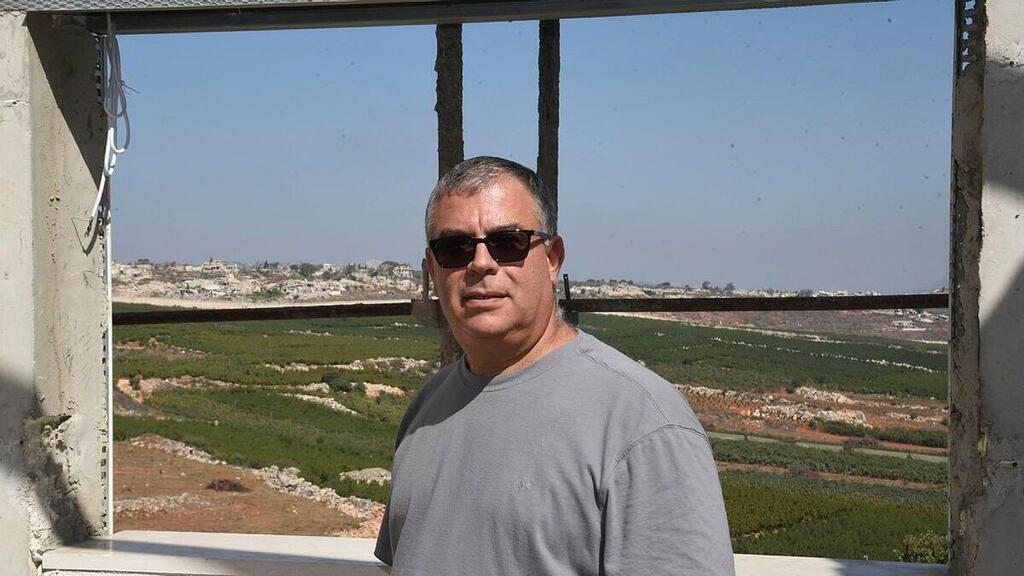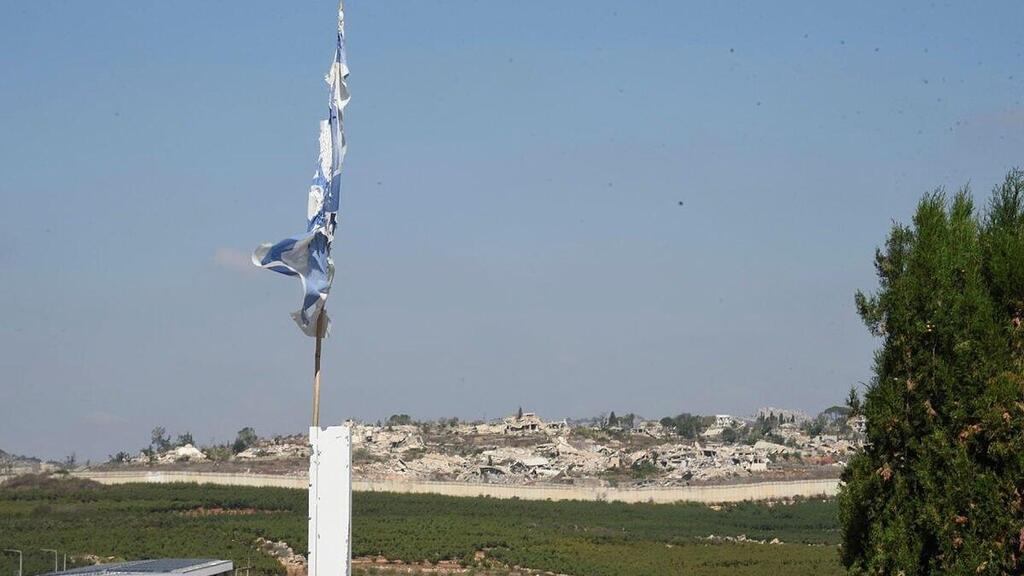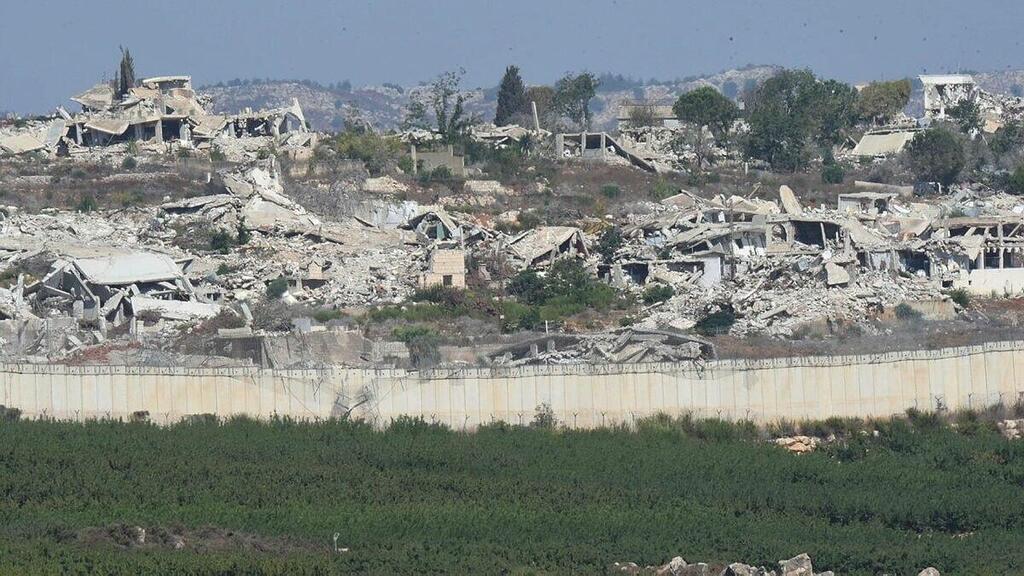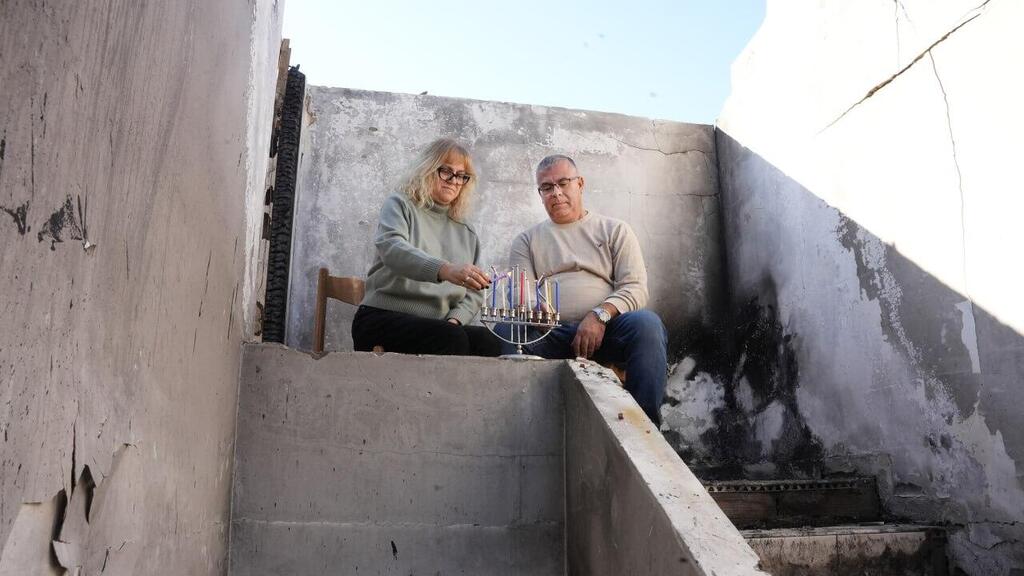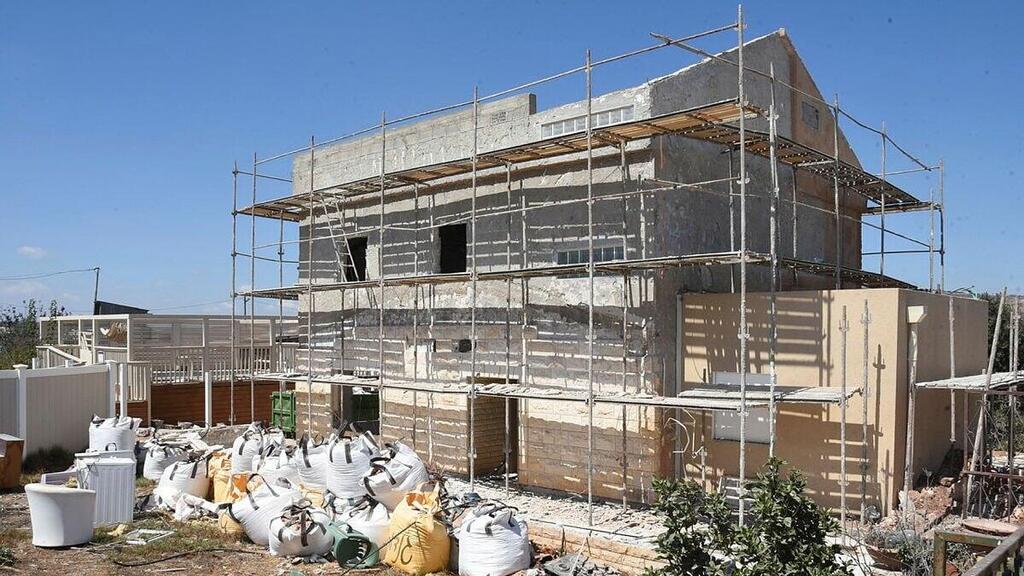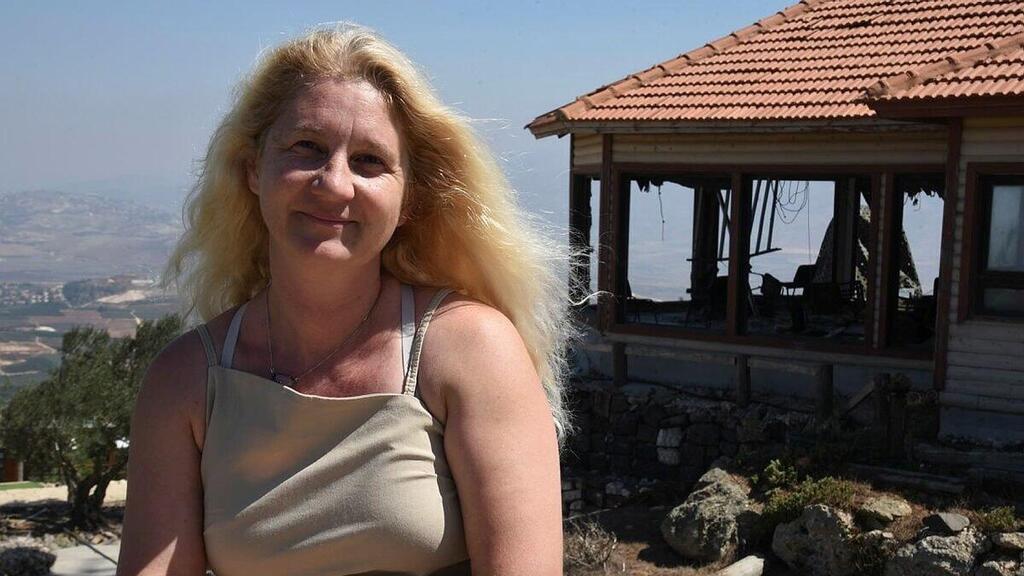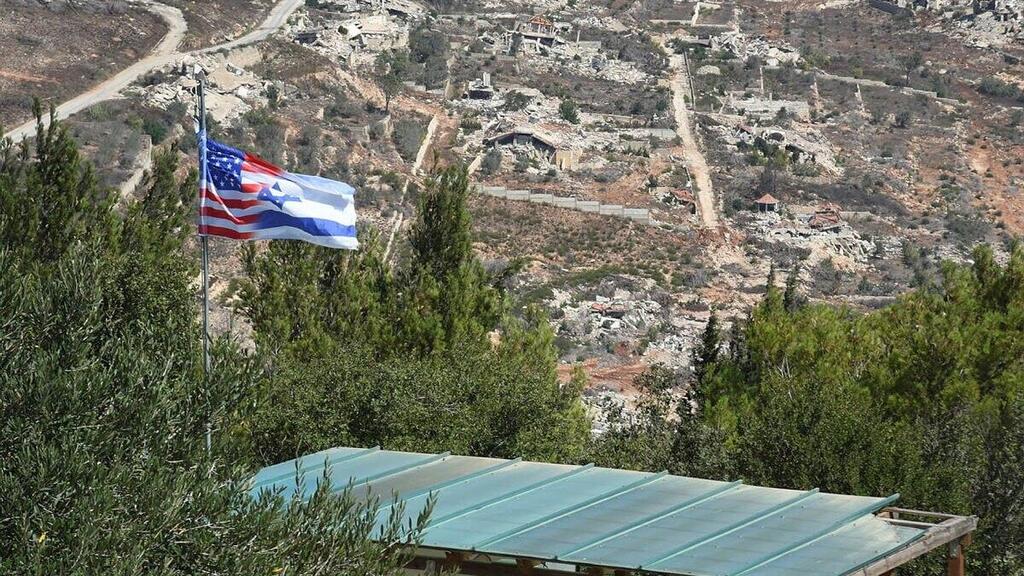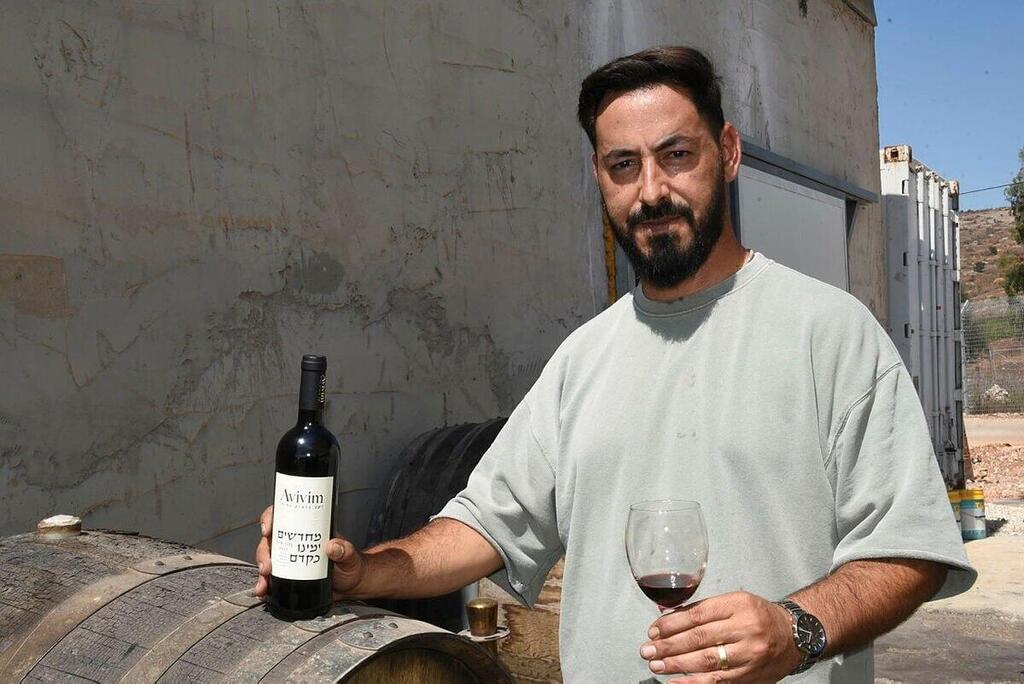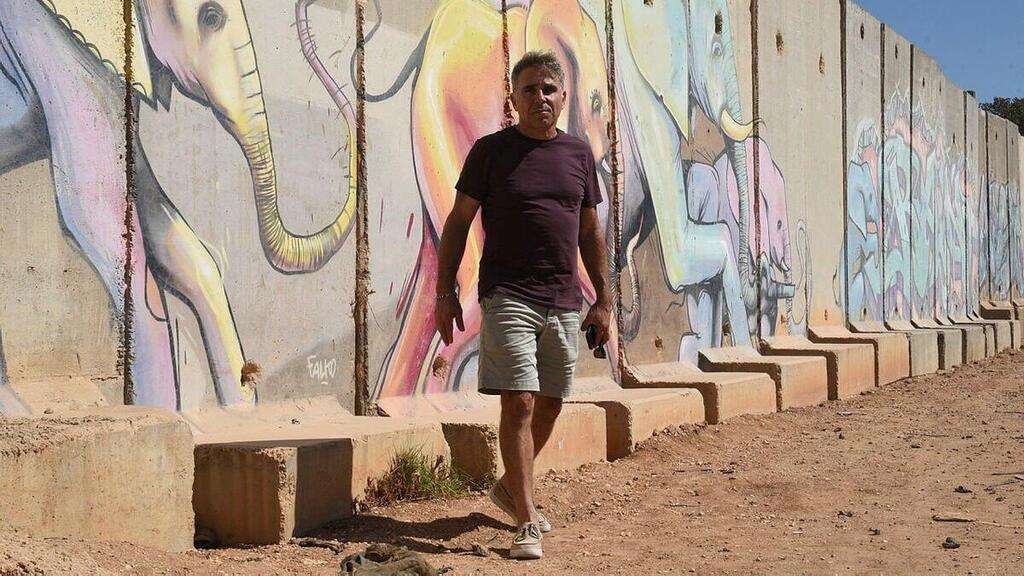It was Friday, shortly after Shabbat began, on Sept. 27, 2024. Israeli Air Force jets cut through the skies of Beirut’s Dahiya quarter, dropping more than 80 tons of bunker-busting bombs with precision on the heart of Hezbollah’s underground headquarters.
Underground, it later became clear, caches and bunkers full of weapons had been prepared for the day of battle. But Hezbollah’s collapse, which began days earlier with Israel’s “Pagers” operation, marked a turning point on the northern front — after nearly a year in which displaced residents watched from afar as the Lebanese terror group inflicted destruction. That Friday night, it was clear something had changed.
“I felt much more comfortable about coming back to Metula after Nasrallah was killed, especially now when I see no one has returned to the villages next to us,” says Avi Nadiv at the site of his home, being rebuilt in Metula’s Har Tzofiya neighborhood. “They aren’t allowed to rebuild. I no longer see Hezbollah coming back to hover over us.”
The last time we met Nadiv, deputy head of the council in this historic farming town, he and his wife, Merav, lit a Hanukkah menorah among the ruins of their home. A missile had struck their second-floor bedroom directly, and the house burned down.
Now, the frame of the house is nearly ready for plaster. Avi greets us at the front, proudly pointing to the workers on scaffolds.
On the second floor, where the bedroom once stood, he admits: “We debated whether to return to that room or sleep downstairs. Today there’s no debate — we’re going back to that room, without fear. We’re really waiting for that moment.”
From the bare concrete window, Nadiv points toward the Lebanese villages across the ridge. Below, construction workers repair other damaged homes in Metula, a town devastated in the war, where only a handful of residents have returned so far.
“Metula is changing,” he says. “We feel much safer here. The army is far more present than in October 2023, and it’s quieter. We’re happy to come back.”
The devastation across the border does not obscure the view: “We see the destroyed village of Kila. Marj Ayoun remains intact, since its residents are Christians and we have no problem with them. Al-Khiam is partly destroyed. And there’s the Hamamis ridge, still held by the IDF,” Nadiv describes.
After years when IDF posts were behind the frontline towns, with only small units on alert, the security concept has shifted. “The battalion protecting us is deployed in front, across all three border directions,” Nadiv explains. “They sit, they watch, they control, and that’s a situation we can accept.
“We no longer see anyone near the border, not even shepherds in disguise. Whoever comes close will pay with his life. That’s how it must continue. What happened won’t happen again. A bullet between the eyes — that’s what I expect.”
And still, the wounds remain. “The memories that burned are a scar in the heart that will never go away,” he shares. “We can’t get over that. Seeing the house rebuilt gives hope, but the little things — the photos, medals, certificates — all burned. We can’t replace them.”
“I hope time will help,” he adds. “We search every day among friends and family for those little memories, asking people to send us even photos from the kids’ kindergarten. We’re trying to piece it back, and that will follow us for a long time.”
The road from Metula down to Misgav Am, a kibbutz overlooking the Shiite village of Adaisseh, is still scarred by the heavy armor that crossed into Lebanon. The visitor center atop the kibbutz was destroyed by Hezbollah shelling.
By the ruins, we meet Natalie Dumitrescu, who runs the center and now plays a central role in rebuilding. Unlike residents near Gaza, who never imagined the threat, she says, “We knew this was coming. We didn’t know how big it was, but it wasn’t a surprise.”
She explains: “We were mentally ready for an invasion, for anything, because we couldn’t do anything else. The fact that it didn’t happen was just a miracle. Sadly, the IDF wasn’t really with us before, but now it is.”
The sight of the ruined villages across from Misgav Am, once intended as staging grounds for an attack on the Galilee, doesn’t make her happy. “It’s very sad, because we keep hope that one day we’ll live in peace,” she says. “If there’s hope in the Middle East, it’s with Lebanon — at least for us in the north. We need to rebuild and grow again, for us and for Israel. What happens on their side depends on them.”
A few meters away, two teenagers pause from their work, sweaty and drinking from a bottle of cold water. They are part of a group of 12 high school graduates spending a year of service before joining the army, volunteering through a settlement program called Kedma.
They help with landscaping, youth activities and renovations in the kibbutz. “The work is really hard and we’re on a tight schedule,” admits Sol Rakover shyly. She came from Beit Shearim in the Jezreel Valley. “But families tell us we pulled them out of depression, because we bring optimism and a willingness to help.”
Liad Sonino from Kfar Vradim, working beside her, adds: “We work in the gardens, with the youth, with the community center, even fixing the building we live in.”
For more than a decade, until Oct. 4, 2024, Iran maintained an observation site in Maroun al-Ras, overlooking Avivim and Yir’on, with a replica of the al-Aqsa Mosque. It was inaugurated 13 years earlier in a ceremony attended by then-Iranian President Mahmoud Ahmadinejad. It became a hub for Hezbollah rallies and threats, just hundreds of meters from Israel’s border.
From his home in Avivim, Rafi Biton can now see the ruins of that site. Many homes in Avivim were hit and are still under repair.
“The army doesn’t let them rebuild across from us, and soldiers are back in the post right in front of us on the border,” Biton says. “It gives us a sense of security to know someone is standing in front of us, not behind. That wasn’t the case a year ago. Families have come back and the community is being restored.
“As it is written, ‘your children shall return to their own borders.’”
We met him in January 2025, a day after the cease-fire with Hezbollah took effect. After more than a year in exile, he returned to assess the damage to his home. He didn’t know if he could convince his wife, Rachel, to come back. That day, she called him every few hours on video chat, demanding to see his face and check he was safe.
“I’m very worried. I left a home of 32 years and I don’t see the way back,” she told us then.
A few months later, they returned. “I came back because of my heart,” Rachel explains, referring to her husband. “I saw my heart wasn’t whole because he wanted to be in Avivim. I can’t say I’m happy here. When night falls, I get nervous, close the shutters, I even replaced the door. The house feels like a prison with the bars I installed. But the main thing is he’s happy.
“If I took him elsewhere and he was sad, it wouldn’t be worth it. Still, sometimes it’s hard for him and the kids to deal with my fears.”
That conflict — the desire to return versus the fear that lingers — is common among residents. “I get emotional talking to you,” Biton admits, eyes wet. He has been struggling with the trauma of the evacuation.
“I see Rachel’s fears. She’s slowly overcoming them. Thank God this war didn’t break us.” Then he reflects: “It did break us emotionally. We weren’t home, we were hurting, the kids were scattered. Rachel moved here from Tiberias over 30 years ago. I promised her the world, and gave her explosions and noise.”
What keeps them there is faith and hope: “I hope we have a good year, that people will come live here and the town will thrive. I call on the government to lift this place up. We’re not asking out of pity. We want it to flourish so the other side sees we’re rebuilding.”
Not far from their home, the ruins of his relatives’ winery have been cleared. In March 2024, “Avivim Winery” was hit by a missile and burned down. Tens of thousands of bottles exploded, barrels and machinery were destroyed. Israel Biton, one of the owners, had no choice but to rebuild in order to qualify for compensation.
“We chose to stay and rebuild in the same spot,” he says. Among the wreckage, they found a few intact bottles. “After the cease-fire, when the maneuver in Lebanon was ongoing, we dug and found bottles sealed with wax that survived the fire. That was a kind of miracle.”
To keep producing wine, he partnered with a winery in the Dalton industrial park. “There was mortal danger here, but since the maneuver ended, it’s been quiet. People are back, tourists are back, and so is the wine,” he says, raising a glass.
In Shtula, things are more complicated. Some residents returned, some are hesitant, and others have no homes to come back to.
From one of the balconies of a destroyed house, Avi, the community chair, points out the positive changes: “Everything you see here was Hezbollah towers, terror posts and houses. They were watching us. The IDF took them down. What the army did here is incredible.”
A month ago, when we last met him, the destruction was untouched. The community pool lay in ruins, the grocery store was shuttered, and the streets were silent with abandonment. Out of 100 homes, 70 were damaged, only 20 repaired and livable, and 15 completely destroyed. Now, tractors are at work on the roads.
Avi believes the army fulfilled its security commitments. Now the state must meet its promises of “unprecedented and revolutionary” development.
“The council is doing what it can, but bureaucracy is standing in the way. Take the internet for example, we’re 20 years behind. No fiber optics. Is it reasonable that parents will come back here and won’t have a stable internet connection?
“We want to install security cameras, but without fiber, nothing works. Kids come home from school and the internet keeps dropping.”
He sums up the situation with cautious pessimism: “Things will deteriorate. People won’t come back. They want a basic quality of life — a grocery store, internet, the basics. Our school is a 10-minute drive, but the bus takes 45 minutes because it picks up kids from other towns. Is it reasonable for a first-grader to leave at 6:55 a.m.?”
“The IDF is taking care of us — I can see that,” he says. “But on the municipal level, we’re not being cared for at all. Don’t feed us stories.
